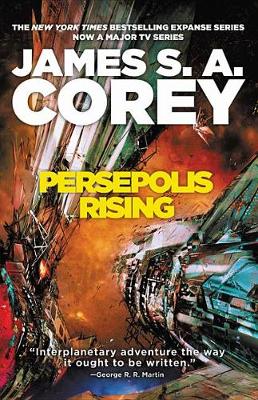Reviewed by clq on
In one way the book seems almost like a return to the political drama I enjoyed so much in the first Expanse-book. In another way this book is nothing like the first book at all: Persepolis Rising goes extremely light on the passive in the passive-aggressive politicking that upheld the tension in the first book. The result is a more action-driven plot, at the expense of the exciting, drawn-out, political tension. I can see the appeal of both, but personally I would probably have preferred it if the politics played a more prominent role. Some of the political philosophies that are introduced to justify certain "evil" actions lead to interesting trains of thought which I think could have been sustained for longer.
That said, most of the time this is a book about war. And it's a pretty good book about a war. It moves along what feels like a relatively standard path for a story like this, but with enough twists and details that the story remains interesting.
The narrative device, which I haven't really liked when it's been used in the past, of sometimes telling the story through the eyes of the "evil" characters is reprised. It almost worked for me this time, but not quite. The purpose behind it is probably to be a device that can expose the motivation and thoughts of the opposing side in the war, which it does, but I can't help but think that it couldn't also have been done in a different way. The main strength of these books for me has always been that I absolutely love the characters, that I can relate to what they are doing and thinking, and that I'm willing them to succeed when I'm following their stories. Occasionally checking in with the other side of the battle takes me out of this atmosphere.
In any case, this is a very good book. It's definitely a step back up from the previous one. It's not an extraordinary book, which I've come to hope for from this series, but it's a very solid story about a war in space. And now that I'm finally caught up with the Expanse series, I now have to wait along with everyone else, and look forward to what comes next!
Reading updates
- Started reading
- 12 September, 2018: Finished reading
- 12 September, 2018: Reviewed
